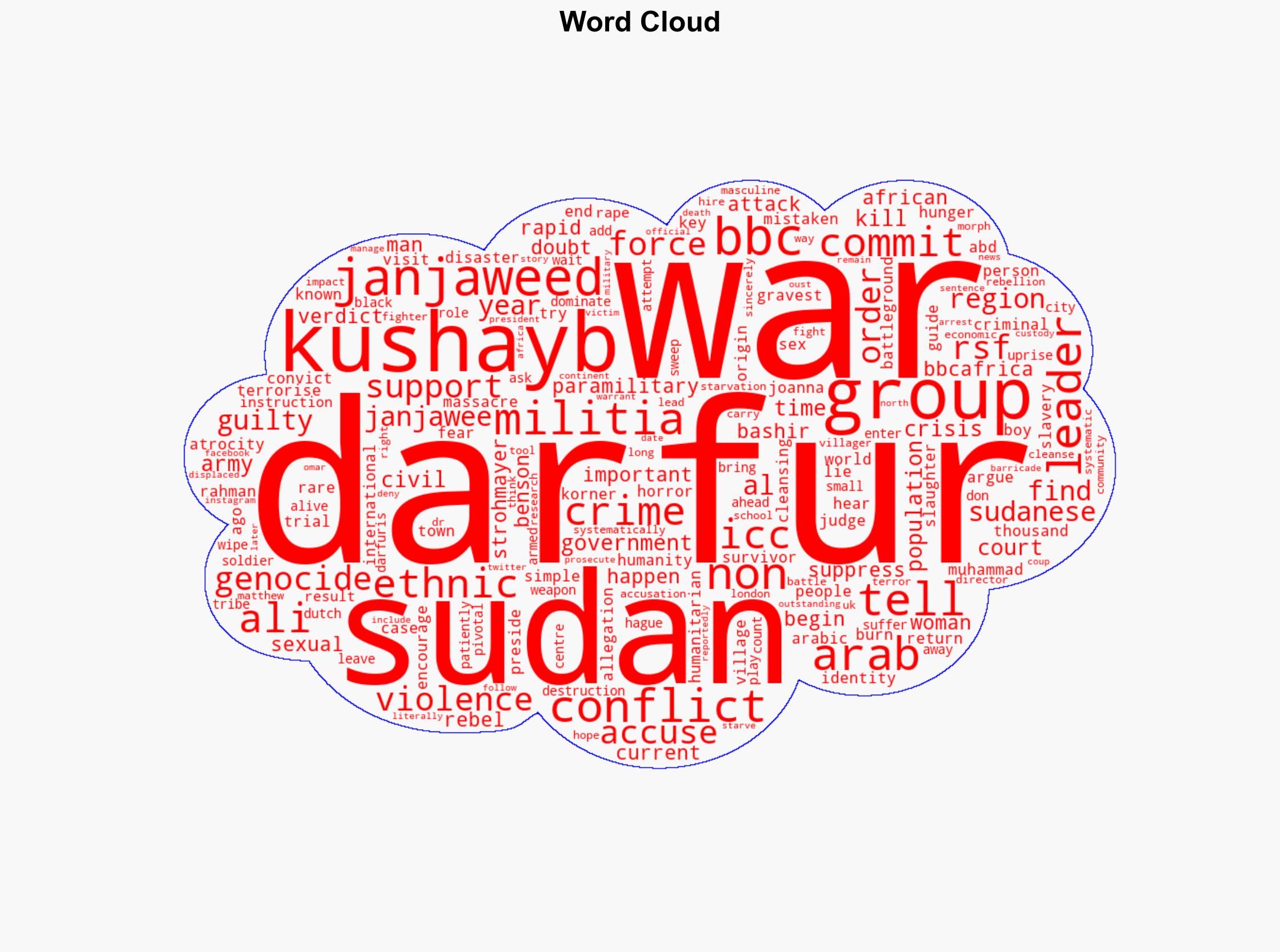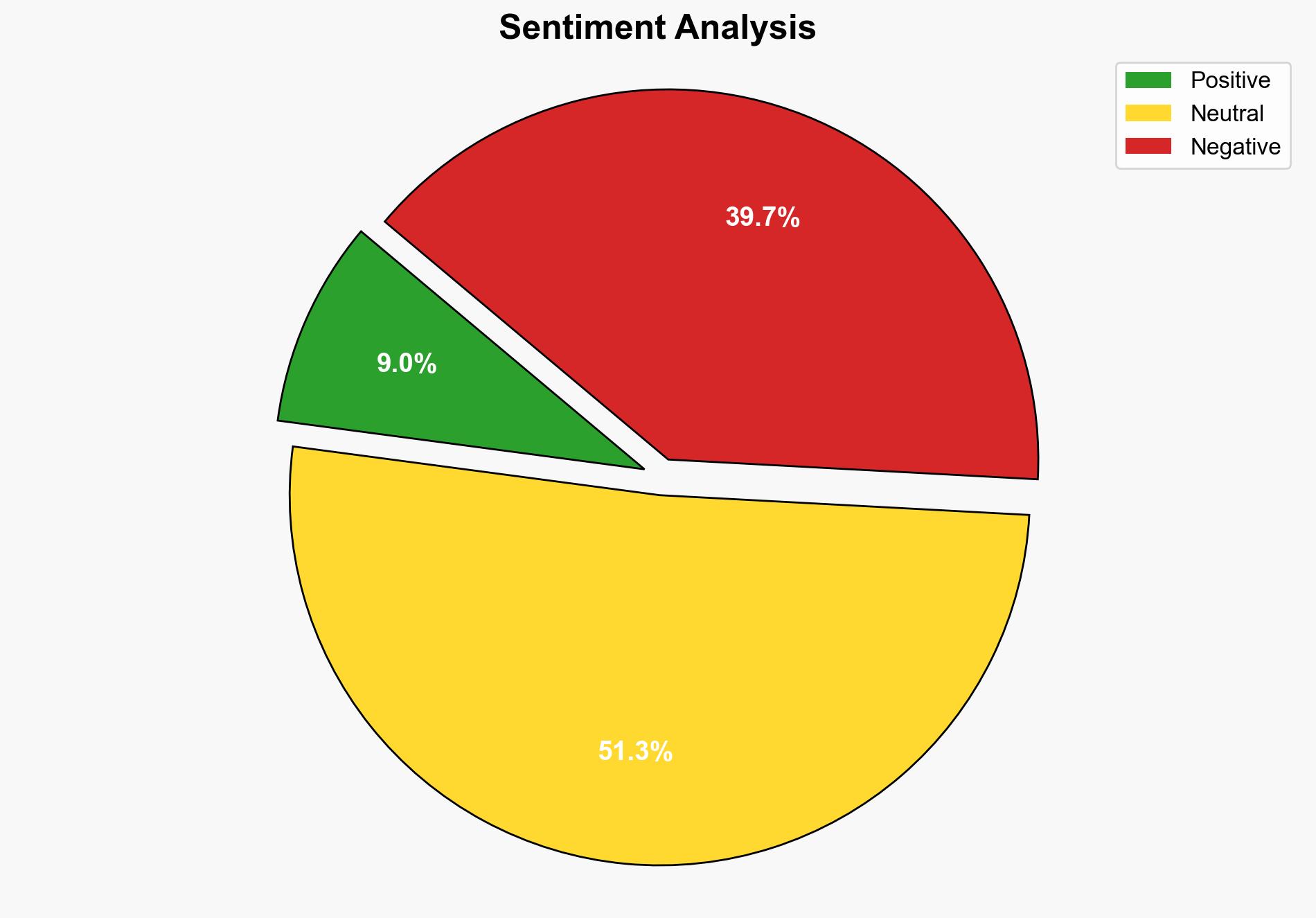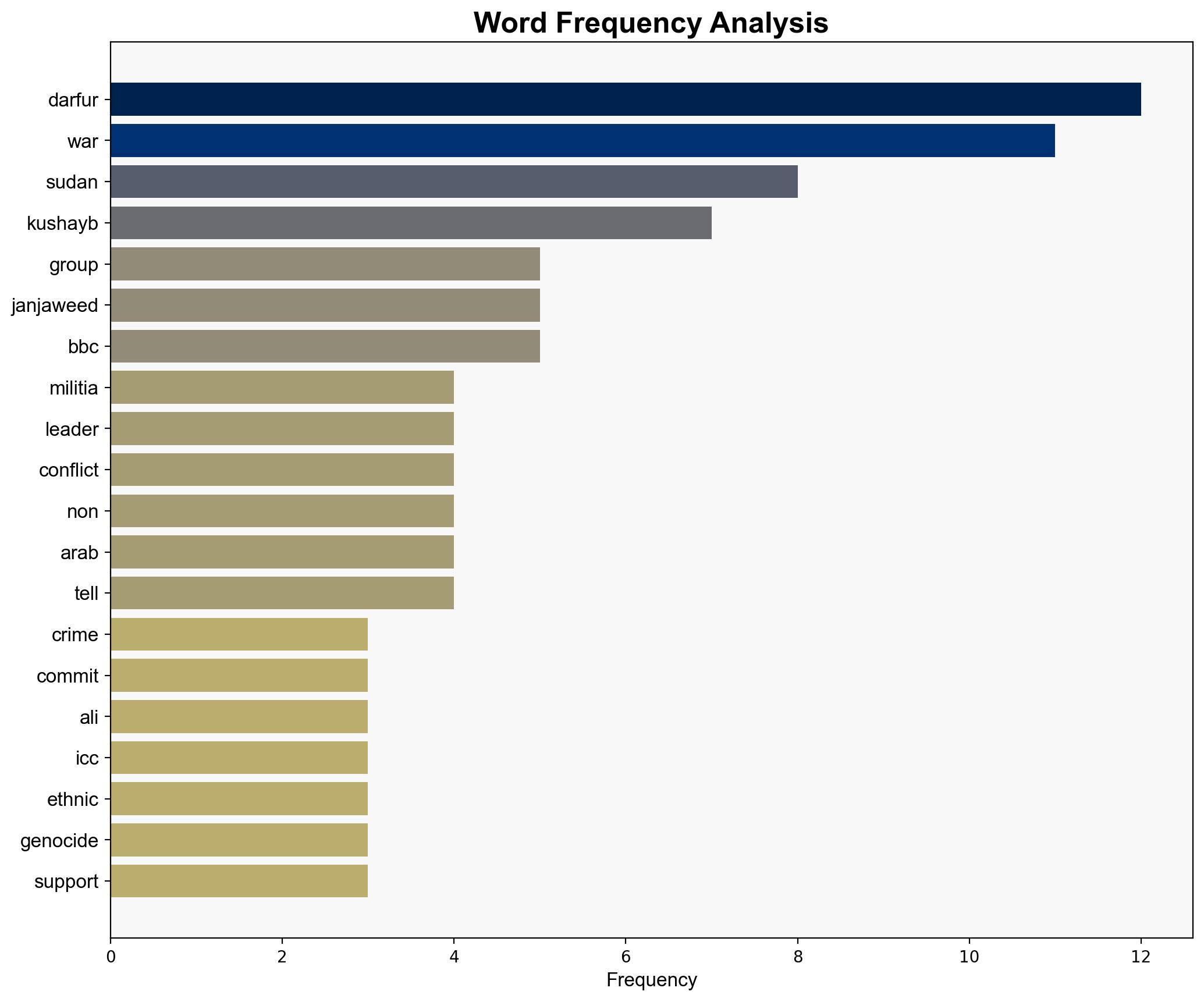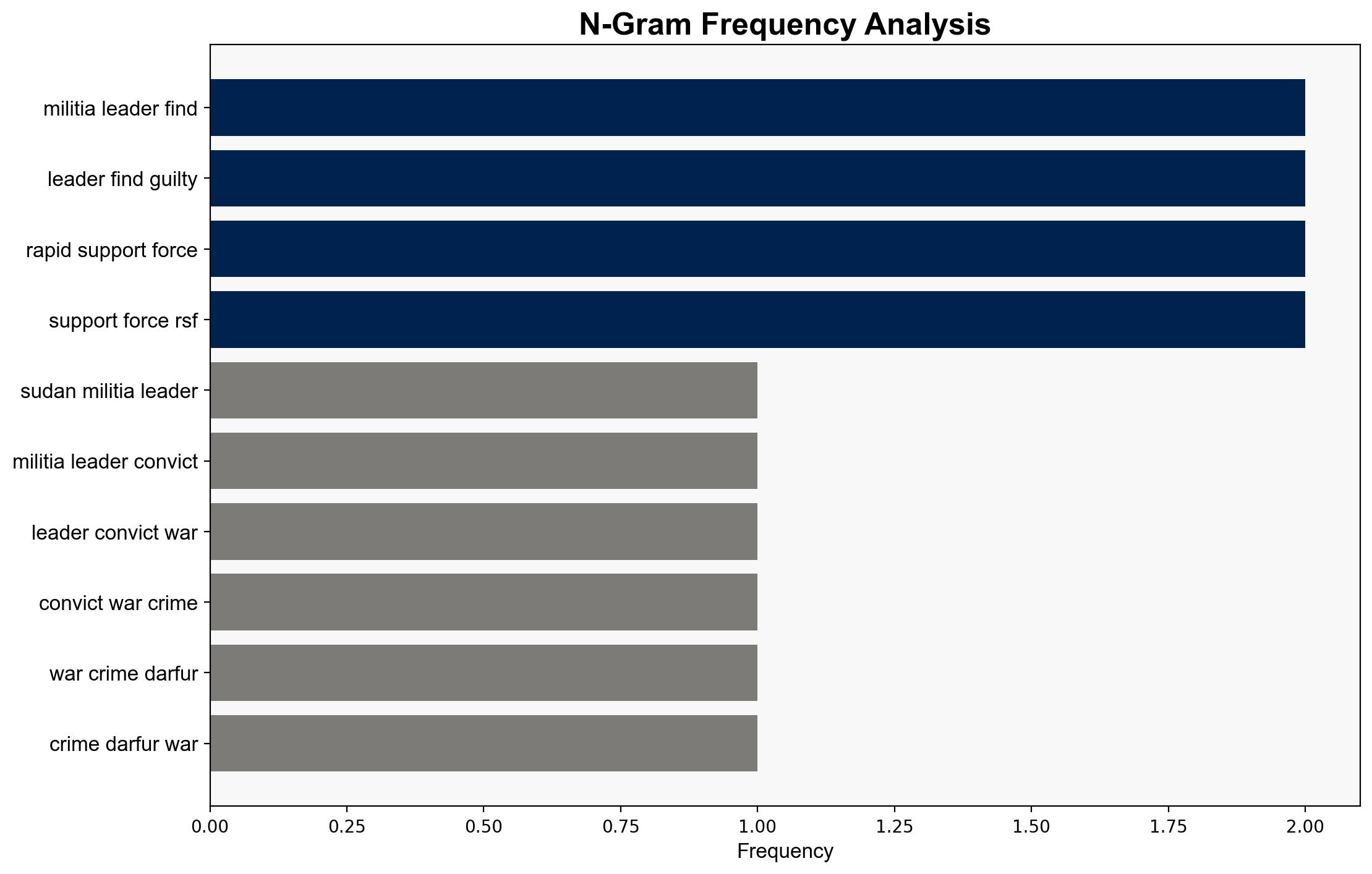Sudan militia leader convicted of war crimes during Darfur war – BBC News
Published on: 2025-10-06
Intelligence Report: Sudan militia leader convicted of war crimes during Darfur war – BBC News
1. BLUF (Bottom Line Up Front)
The conviction of Ali Muhammad Ali Abd-Al-Rahman (Ali Kushayb) by the International Criminal Court (ICC) for war crimes in Darfur marks a significant legal precedent but may have limited immediate impact on the ongoing conflict in Sudan. The most supported hypothesis is that the conviction will not deter current actors in the Sudanese conflict, given the entrenched nature of the violence and the morphing of militia groups into formal paramilitary forces. Confidence level: Moderate. Recommended action: Increase diplomatic pressure on Sudanese authorities to cooperate with international justice mechanisms and enhance support for humanitarian efforts in Darfur.
2. Competing Hypotheses
Hypothesis 1: The conviction of Ali Kushayb will serve as a deterrent to current and future militia leaders in Sudan, reducing the likelihood of war crimes and crimes against humanity.
Hypothesis 2: The conviction will have minimal impact on the current conflict dynamics in Sudan, as the Rapid Support Forces (RSF) and other groups continue operations with impunity.
Using the Analysis of Competing Hypotheses (ACH) 2.0, Hypothesis 2 is better supported. The ongoing violence and the RSF’s evolution from the Janjaweed suggest a continuity of tactics and impunity, undermining the deterrent effect of the ICC ruling.
3. Key Assumptions and Red Flags
Assumptions:
– The ICC’s actions are perceived as legitimate and influential by Sudanese actors.
– The Sudanese government has the capacity and willingness to enforce international rulings.
Red Flags:
– Reports of continued violence and ethnic cleansing by the RSF indicate a disconnect between international legal actions and on-ground realities.
– Potential bias in assuming that international legal outcomes directly influence local conflict dynamics.
4. Implications and Strategic Risks
The conviction may lead to increased international scrutiny on Sudan, potentially affecting foreign aid and diplomatic relations. However, the entrenched nature of the RSF and its integration into state structures pose a risk of sustained conflict. The potential for escalation remains high if international pressure results in internal power struggles or if the RSF perceives increased external threats.
5. Recommendations and Outlook
- Enhance diplomatic engagement with Sudanese authorities to encourage cooperation with international justice efforts.
- Support humanitarian initiatives to alleviate the suffering of displaced populations in Darfur.
- Scenario Projections:
- Best: Sudanese authorities comply with international norms, leading to a reduction in violence.
- Worst: Increased violence and instability as militia groups resist international pressure.
- Most Likely: Continued conflict with sporadic international interventions and limited local compliance.
6. Key Individuals and Entities
Ali Muhammad Ali Abd-Al-Rahman (Ali Kushayb), Omar al-Bashir
7. Thematic Tags
national security threats, regional focus, international justice, humanitarian crisis





